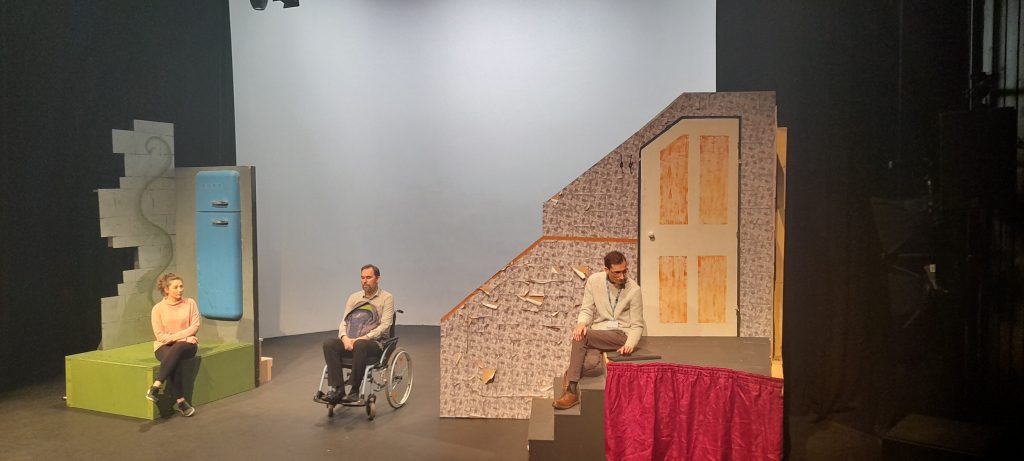.This World Social Work Week, Akudo Amadiegwu discusses a local play Making Headway, part of the Heads Together research project, to improve practice and outcomes for people who have experienced brain injuries.
Social Work England will be hosting events to mark World Social Work Week (18-22 March 2024). Here at Canterbury Christ Church University, the social work team will be celebrating by hosting Making Headway, a play that brings the lived experience of brain injury to life on the 19th and 20th of March 2024. There will be two performances for people with brain injuries, professionals, and our students from different courses.
Making Headway is part of an NIHR-funded project called Heads Together. The research aims to bridge a knowledge and skills gap by creating resources that will improve social worker knowledge and training in brain injury. Heads Together is a collaboration between leading brain injury experts, researchers, and leading brain injury charities led by Prof. Andrew Bateman.
The play, nominated for a global interprofessional award, is a collaboration between Heads Together, Headway Essex and Canterbury and Packing Shed Theatre who are also doing a workshop for our Drama Students.
Why have we chosen to focus on brain injury? It is the leading cause of death and disability for people aged 0-40 in the UK (Centre for Mental Health 2018). It is estimated that one person is admitted in a hospital every 90 seconds, at a cost of £15 billion to the UK economy. It has been referred to as a ‘silent epidemic’ and a ‘global world problem’.
The exact number of people with brain injury in the UK is unknown due to the hidden nature of the condition and sometimes, it is not the presenting problem. We find that other issues such as homelessness, mental illness and behavioural problems may mask the fact that a person has a brain injury. However, it is estimated that over 1million people in the UK live with this debilitating condition.
Unfortunately, it is not given requisite attention in social work research and education. This means that social workers go into practice and students into placements with little or no knowledge of this condition. This can have serious consequences as safeguarding adult reviews have highlighted a lack of social worker knowledge of brain injury and interprofessional working as contributory factors to these unfortunate deaths.

I have been privileged to have worked on Heads Together for the past two years, and seen how when we put our heads together (pun intended) we can turn ideas, passion and desire for change into positive outcomes. Heads Together has presented incredible opportunities for me, locally and internationally, from training social workers in a local authority following the safeguarding adult review into a death with a person with brain injury, to presenting at International conferences in the next two weeks, at the International Brain Injury Conference in Las Vegas, Nevada and the largest social work conference hosted by the International Federation of Social Workers in Panama. We are exploring the next steps of the project with a view to expanding our reach.
There are four streams to the funding; one being a systematic review, the second is a survey of social work educators, and the third, interviewing social workers, newly qualified, experienced and specialist, and then the work with our Experts by Experience groups. Making Headway is the 5th work package and has been shown in theatres in Essex, the University of Essex, will be performed at Leeds University and this week, here at Canterbury Christ Church University.
What with inspiring call-to-action charges from our Professor Janet Melville-Wiseman and Head of Social Work, Tim Odell, we hope to foster wider interprofessional discussions and collaborations, and if you ask me, my secret wish, maybe a national conversation about brain injury.
This research was funded by the NIHR using UK aid from the UK Government to support global health research. The views expressed in this publication are those of the author(s) and not necessarily those of the NIHR or the UK government.
Akudo Amadiegwu is a Lecturer in Social Work in the School of Allied and Public Health Professions.
 Expert comment
Expert comment Emma Grafton-Williams
Emma Grafton-Williams 2354
2354


